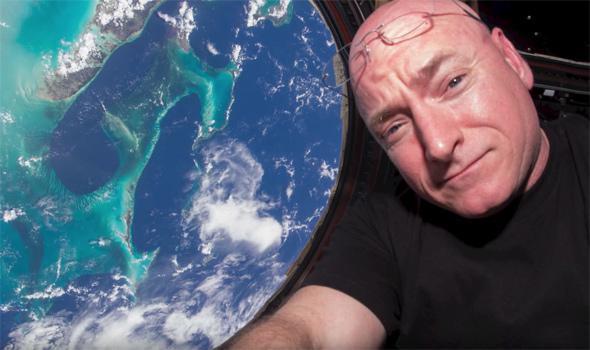On Friday, astronaut Scott Kelly quietly* became the longest duration American space traveler in history.
On that date he surpassed the previous American record holder, Mike Fincke, at 382 accumulated days in space.
To celebrate, NASA’s Johnson Space Center put together this lovely tribute video:
Kelly is currently on the International Space Station, participating in a yearlong mission in orbit to test the effects of long-term microgravity on the human body. By the time he comes back to Earth, scheduled for March 2016, he will pass 500 days in space. Amazingly, that’s not the longest duration anyone has spent in space; cosmonaut Valeri Polyakov was on board Mir for more than 400 days starting in 1994. And if Kelly wants to beat the record for longest accumulated time in space, he’d need to spend about another year up there; cosmonaut Gennady Padalka lived in orbit for a total of 879 days.
Not to belittle Kelly’s achievement! In fact, it fits in neatly with so many other records space travel has engendered. I imagine—and I certainly hope—we’ll be seeing a lot of these records broken very soon. If things go well, in a decade or so putting humans into space will be more common. Never routine—this is a difficult and dangerous operation, be assured.
But common? With China setting to go to the Moon, India making excellent progress in space travel, and commercial companies advancing as well, I see a time not too long in the future where the ideas in books I read as a kid about exploring other worlds can be described as science, without the modifier of “fiction.”
You can follow Commander Kelly on Instagram and Twitter.
*In space, no one can hear you celebrate.
